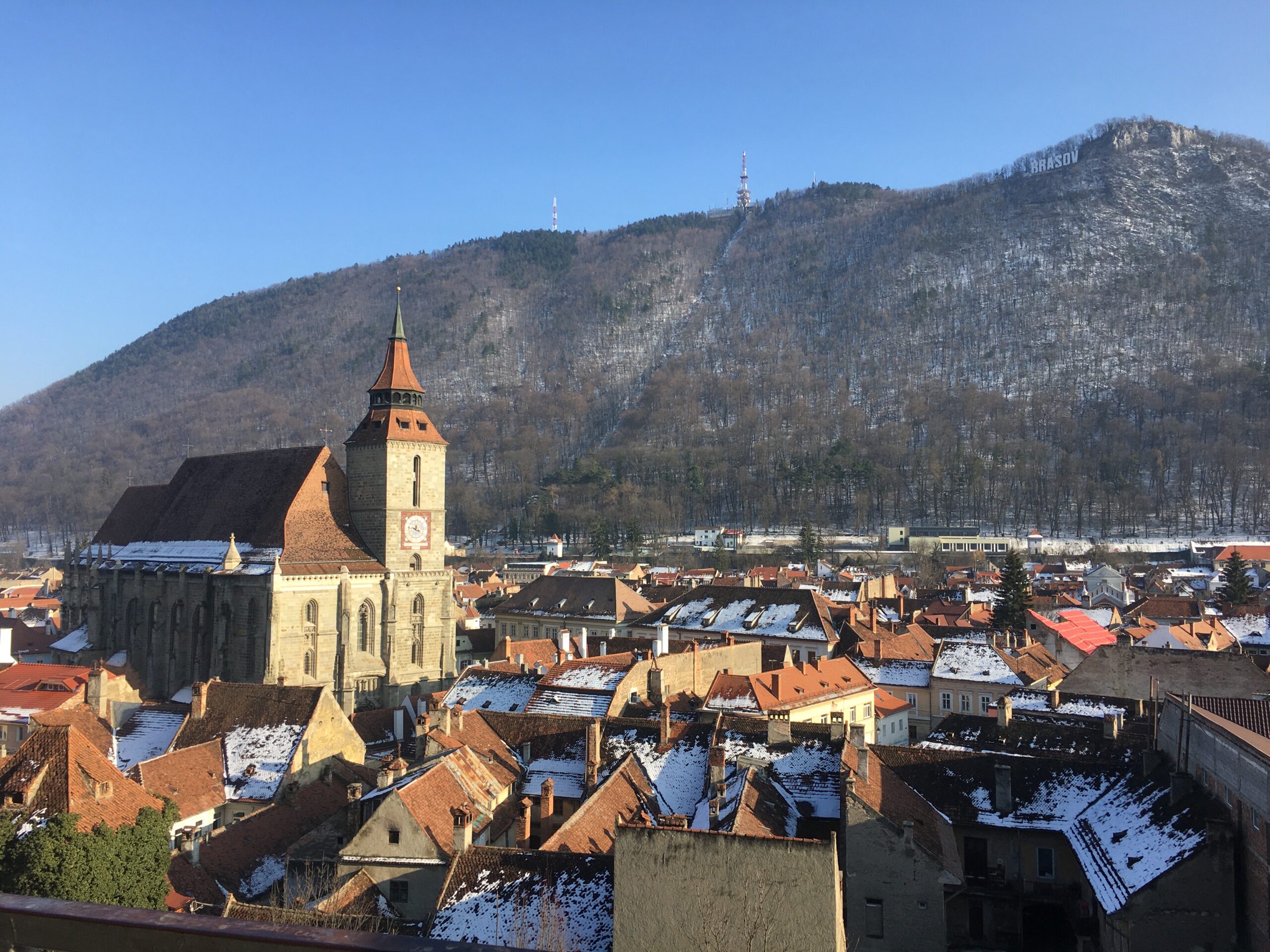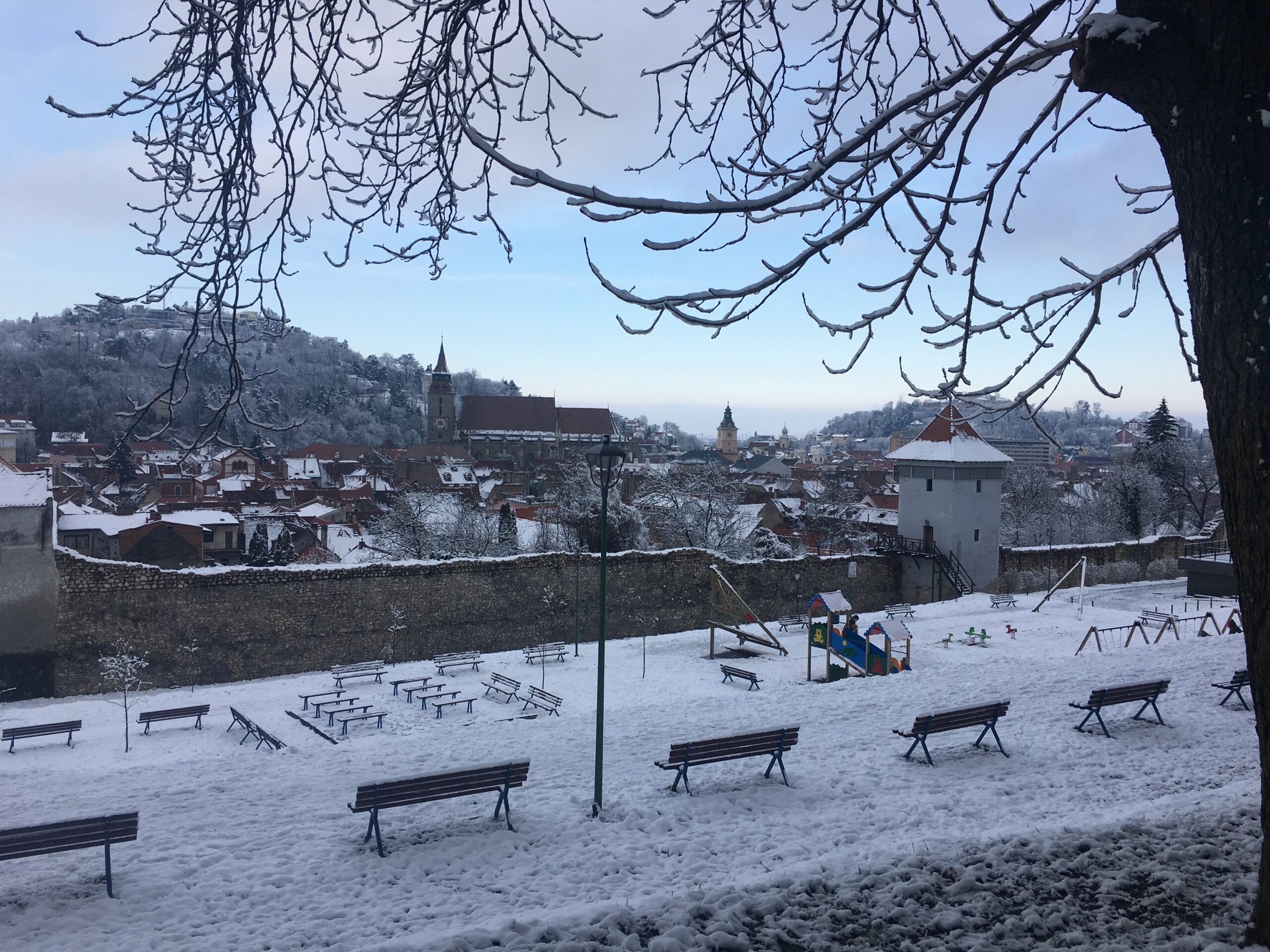For the version of this text in English, please click HERE.
Voi prefața această postare prin a menționa cât de recunoscătoare sunt pentru mesajele de sprijin pe care le-am primit în aceste luni, prin cuvinte, lucruri sau interacțiuni. Contează foarte mult ca oamenii din jurul tău, în special cei pe care-i apreciezi, să recunoască experiența dificilă prin care treci. Nu face altceva decât să întărească relații care deja există.
Mă opresc în particular asupra acestui cadou pentru că de multe ori mi-am dorit să ofer un dar care să-i spună persoanei cât de mult îmi pasă de ea și nu cred că am reușit să o fac până acum. M-am gândit că sunt și alții în această situație și că poate putem cu toții să învățăm din experiența pe care o prezint mai jos.

Am primit cadoul perfect pe 20 februarie. O carte în loc de tradiționalul mărțișor. Bineînțeles, sunt multe tipuri de cărți și, da, de obicei o carte este un cadou potrivit pentru mine. În cazul acesta a fost totuși vorba de ceva în plus: semnificația cărții.
După moartea tatei, am discutat cu persoanele apropiate sau cele care au întrebat detalii despre cum s-a întâmplat ori am mai scris aici în engleză. Cu o notabilă excepție întruchipată desigur de the boyfriend, nu am discutat despre roller coaster-ul emoțional în care m-am trezit. Și nu doar pentru că nu știu ce să zic, dar și pentru că nu vreau să-l pun pe interlocutor în ipostaza de a căuta ceva de zis. Pentru că, de fapt, sunt prea puține cuvintele care ne mângâie și prea puține persoane care le pot găsi.

Poate pentru că am un sistem de sprijin bine pus la punct [care, printre altele, mă ajută și pentru că îmi dă de lucru], poate pentru că sunt într-un spațiu care-mi încântă spiritul sau poate pentru că interacționez constant cu oameni preocupați de învățare, majoritatea momentelor dintr-o zi sunt frumoase. Zilele trecute am făcut o plimbare pe aleile de la baza celor trei coline din Brașov și eram cu un zâmbet imens sub mască, uitându-mă la ce văd și reflectând.
Dar sunt și acele momente care vin din eter în situații mai puțin potrivite, ca atunci când fac sport sau când dorm, când constat lipsa tatei. Nu psihologic, ci fizic. Se pare că poți simți lipsa.

Ei bine, prietena mea Alina și cu mine ne-am cunoscut într-un târziu de septembrie acum aproape 10 ani printre cărți. Ne-am împrietenit printre cărți și jucării și am fost aproape prin toate momentele importante prin care am trecut. Nu am vorbit despre cum mă simt după decesul tatălui meu pentru că ce este până la urmă de spus? Nici măcar nu sunt sigură că aș putea alege cuvintele potrivite pentru asta. Nu, reformulez, sunt sigură că nu aș putea alege cuvintele potrivite pentru asta.
Cred că și-a dat seama pentru că ea este cea chiar mi-a făcut acest cadou, cartea scrisă de Eric-Emmanuel Schmitt, Jurnalul unei iubiri pierdute. Este povestea despre doliu în urma morții mamei autorului.

Mi se întâmplă des să găsesc fragmente în cărți și să gândesc: <Exact așa simt și eu> sau <Da, da, așa este>. În această carte, cu câteva mici schimbări de gen și contexte, m-am identificat aproape total. Asta înseamnă să fii scriitor: să traduci emoții în cuvinte, să le pui în context și alții să se poată identifica cu ele.
Dacă vrea cineva să știe cum se simte un prieten adult care și-a pierdut părintele/părinții, să citească această carte. Să adapteze apoi la contextul prietenului sau prietenei și cred că va avea o imagine destul de clară. Poate, desigur, și să întrebe persoana cum se simte. Probabil că în acel moment amândoi se vor gândi că este o întrebare fără sens la care știu deja răspunsul. Dar este un semn de atenție la celălalt când întrebi, așa că nu este inutil. Cuvintele nu vor clarifica, dar vor aduce un plus relației.

Aș sugera să fie făcută cadou celor reflexivi și introspectivi care sunt în doliu, dar am îndoieli că ar funcționa în toate cazurile. Fiecare reacționăm diferit și dacă prietena sau prietenul face față traumei evitând să se gândească, poate are nevoie totuși de altceva și nu să i se pună toată durerea în față. Cu toate că finalul este unul optimist.
Ce face acest cadou să fie perfect? Implică o experiență care face plăcere celui care o primește, nu este atât de costisitoare încât să îndatoreze prea mult și răspunde la o nevoie concretă neverbalizată. Poți face mai mult pentru a arăta că știi și că-ți pasă?
Pentru mine, după ce am citit Jurnalul unei iubiri pierdute, a început o altă etapă. Sunt mai pregătită să mă uit la ultimele luni și să-mi corectez greșelile. Sunt mai pregătită să acord timp și spațiu pentru problemele altora la fel cum simt că mă pot orienta spre mine cu mai multă ușurință decât în trecut. Pentru că, de ce să ascund, moartea unui părinte te forțează să privești spre cine ești, ce faci și cine vrei să fii.
Lipsa tatălui meu nu va putea fi înlocuită de nimeni și de nimic. Din fericire, toată viața mea, tata m-a încurajat să trăiesc cum vreau chiar și când era în complet dezacord cu alegerile mele, amintindu-mi constant că fiecare decizie are consecințe, multe dintre ele ireversibile. Tot ce pot face în continuare este să aplic principiile pe care le-am învățat de la el și să mă bucur de timpul care a mai rămas. Pentru că dacă moartea tatei m-a învățat vreo evidență, aceea este că totul este efemer. Așa că, lighten up Anca 😊.
Make today count!

The perfect gift
I’ll start this post by saying how grateful I am for all the support messages I received in these last few months through words, things and interactions. It matters so much that people around you, especially those you appreciate, acknowledge the difficult experience you are going through. It doesn’t make anything other than to strengthen connections.
I stop in particular on this present because many times before I wished to make a gift that tells the person how much I care. I don’t think I succeeded. I thought that there are other people in this situation and that maybe we can all learn from the experience I present below.

I received the perfect present on 20th of February. It was an early 1st of March gift, as in Romania we have this tradition to celebrate the beginning of spring. It’s usually a little figurine which mostly women receive and wear. This time though I got a book. Sure, there are many kinds of books and yes, it it usually a good gift for me. But this time it wasn’t really the book that mattered. It is what the book represented.
After dad died I discussed the experience with close friends or those who asked [we are curious about death and I don’t mind talking about it] or I wrote here. However, without the notable exception of the boyfriend, who has seen the process of grieving unfold, I haven’t really talked about the emotional roller coaster I find myself being boarded. And it’s not only that I don’t know what to say, but also because I don’t want to make the other search for something good to say. Because, truth be told, there’s really not much others can say to make one feel better and there are few people who know what to say.

Maybe because I have a great support system [among whom there are people who help me by keeping me busy with important work], maybe because I’m in a soul hugging place, maybe because I constantly interact with people interested in growth, most days are beautiful. Just a few days ago I was hiking and wore a big bright smile behind my mask watching and reflecting on what I see.
But there are also these moments in which all of the sudden, in really inappropriate contexts, like when I work out or sleep, I have to stop because I miss dad. Not psychologically, not socially, but physically. It’s when you can feel and see absence.

My friend Alina and I met in a late September some ten years ago in a lovely space filled with books and tea and music. Books and toys witnessed how we became friends and since then we have just been there for each other in the most important times. We haven’t really had a chance to talk about how I feel after dad’s death. But what is there really to say? I am not even sure I could find the right words. No, I retract that. I am sure I couldn’t find the right words for it.
I think she knows because she got me this Eric-Emmanuel Schmitt book, Journal d’un amour perdu. It presents the story of grieving after the death of his mother.

It happens to find sentences or paragraphs while reading when I think <this is how I feel> or <yes, this is how it is>. In this book, with minor changes of gender and contexts, I could fully find my experience. This is what it means to be a good writer, I believe: to translate emotions into words, put them into context and have others identifying with it.
If anyone is interested to know how an adult friend who lost a parent or more feels, one could read this book. They can then adapt it to the particular context of their friend and a pretty clear picture emerges. They can, surely, ask their friend directly how they feel. Maybe they will both simultaneously think that the question is pointless and that the answer is known to both of them. But it is a sign of paying attention and being interested, so it’s not pointless. The words will not clarify, but they may strengthen the relationship.

I suggest to give this book as a present to the reflexive and introspective grieving people, but I doubt it will always work. We each react differently and if the friend wants to deal with the trauma without thinking about it, maybe another strategy could be chosen instead. The ending is optimistic though.
What makes this present perfect? It implies an experience the received enjoys, it’s not so pricy that it obliges and it answers to a concrete and non-verbalised need. Can you do more to show you know and that you care?
For me, after reading the book, another stage started. I am more prepared to look at the last few months and correct my errors. I am more prepared to give space and time for listening to the problems of others while it feels easier to turn inward. Because, why hide this, the death of a parent forces you to look at who you are, what you do and who do you want to become.
Nothing and no one will ever replace my father. Thankfully, he encouraged me to live the way I please even when he completely disagreed with my life choices. He taught me that every decision has consequences, many of which irreparable. All I can do next is to apply his teachings and to enjoy the time I have left. Because if there’s something I’ve learned in the last four months is that everything is fleeting. So, lighten up Anca.
Make today count.
p.s. If anyone is interested in my bookmark, check out my friend’s Gabriela’s Facebook page or take a look at her website. She has many paintings that can brighten up and bring more joy into your home. It is not paid advertisement, I simply enjoy her work and am a direct beneficiary of it.